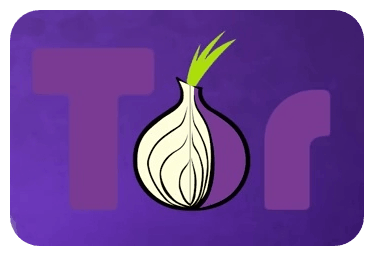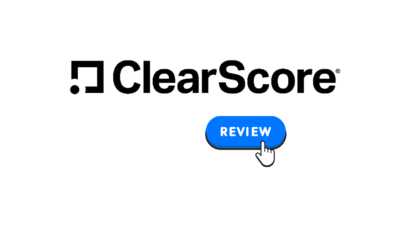Disclosure: Privacy Australia is community-supported. We may earn a commission when you buy a VPN through one of our links. Learn more.
Can Your ISP See Your Downloads

With an increasingly digital world, our ISPs act as the gatekeepers of our data, at least when it comes to where it goes and how it gets to you.
As such, it’s not unreasonable to worry about how much information your ISP has on you, or at the very least, what they might see exactly.
Same goes for your mobile data plan provider, with location data and other things of that nature thrown into the mix.
We’ll do our best to cover some information on what your ISP can see and how you can protect your privacy from the all-seeing-eyes of your ISP and data plan providers.
Can My Internet Provider See What I Download?
That’s a bit of a complicated question to answer because the truth is, not only can they see what you download, they sort of have to do their jobs.
Look at it this way: When you send a postcard through the mail, the mail service needs to be able to read the address to know where to send your postcard.
In the same way, an ISP needs to know where your bits are headed so they can route you correctly, and the same for any bits coming your way.
Much like a postcard though, it’s not encrypted or hidden in any way, and the message you write in the postcard is there for anybody to read, as are your unencrypted bits.
The first layer of protection then becomes putting that postcard in an envelope, and that’s what SSL (Secure Socket Layer) is there for; it creates a sort of an encrypted tunnel between your computer and the websites you visit.
The way you know that the websites you visit are protected with SSL, is to check the URL and look for something that says ‘HTTPS’ rather than ‘HTTP’. That extra S at the end means it’s Secured with SSL and you have nothing to worry about. In fact, you really should install the HTTPS everywhere plugin for your browsers.
Of course, a letter in an envelop can still be read if somebody really wants to, and that’s where you might consider putting it inside a second/thicker envelope and sealing that with a custom seal.So how do you achieve a similar effect with your ISP?
Well you use a VPN which creates an encrypted tunnel between your device and server, possibly in another country, through which the data gets transmitted through.
Granted, your ISP will still see that you’re using a VPN, but they won’t be able to see any of the data that’s being sent back and forth.
Choose an Encrypted Browser for Extra Protection

Another option that you can use along with or instead of a VPN is to use an encrypted browser like TOR. Of course, the big downside is that it can be incredibly slow, but it is free, so there is that.
Ultimately though, there is one thing you have to consider:
Your ISP probably doesn’t really care about what you’re doing.
Sure, the mail service could open your envelope or read your postcard, but they’re dealing with hundreds of thousands of people per second, and they aren’t going to waste their time on the off-chance they find something good.
Not to mention that if it gets out that an ISP is actively spying on it’s clients, it’s going to lose a lot of subscriptions. So before you start freaking out, consider that there’s probably nobody looking at what you’re downloading or doing.
How To Stop An ISP From Seeing Your Downloads
Of course, if you are freaked out about the possibility of an ISP checking your downloads or your traffic, there are specific ways to get around that.
If you aren’t comfortable being on the clearnet, then you have to start encrypting your communications, and there’s quite a few ways to go about that.
Use Open Source Privacy Tools
We touched on this earlier, but there’s actually a lot you can do to secure your browser, such as using HTTPS Everywhere.
Another plugin you might want to look at is Privacy Badger.
Keep in mind that certain APIs sort of require cookies and tracking.

So, some of the websites you use might start having issues, but thankfully you can turn off privacy badger on each website individually.
You can also do other things specifically to your browser, such as tweaking WebRTC in Firefox to stop leaving fingerprints everywhere. Or, if you don’t want to play around with the settings, you can just use a quality secure browser directly.
Another thing you might consider is using some form of secure email. Not only do these help you protect your communication from your ISP, they also stop hackers or any other malicious attacks on your mail. It’s a pretty important tool if you want to keep your data safe online.
Also, you might consider encrypted instant messaging apps as alternatives to Whatsapp or iMessage. Signal and Telegram are two very highly rated secure messaging apps and they can help a ton in securing your messages from any ISP or mobile data provider.
If you use your phone more than your desktop, this is 100% a must for securing your data.
While not necessarily a big thing in terms of securing data from your ISP, I would generally suggest you go for a search engine that isn’t google, since they track a massive amount of information about you, even if it’s just your searches.
DuckDuckGo is a very popular alternative to Google, and it even has its own suite of privacy tools you can download and use. Most importantly, it doesn’t track any data about you or your searches, which is excellent.
Use A VPN To Stop Your ISP From Seeing Your Traffic
Really the biggest thing you can do though, is use a VPN to keep your traffic completely encrypted from your VPN. By creating a secure tunnel directly from your computer to the VPN’s server, you can pretty much obfuscate all your data.
Of course, I recommend that you get a VPN and do all the stuff mentioned above, but I can understand not wanting to do everything. That being said, if you will be picking between getting a VPN and getting the stuff mentioned above, VPN should be at the top of the list.
Best VPNs to Encrypt Your Data
While there are a variety of VPNs out there, these three are the top three, offering different value based on different needs. Make sure to click on their links to see the full reviews and whether they’ll be a good fit for you, both for your wallet and for your security and privacy!
ExpressVPN
ExpressVPN easily makes the top of this list for the absolutely excellent servers, service and features that are provided to you.
For starters, it has 3k+ servers in over 100 countries for you to pick from.

You can find servers with great speeds pretty easily, especially with the included speed test.
It also means that if your ISP blocks one server, you can always find another one to jump on to instead. Another positive is that it can also unblock streaming service libraries, or any website or content that is geolocked, which is a pretty sweet deal.
In terms of privacy, they’re also pretty great, with a completely no-log policy which is very much appreciated. They also use the latest security protocols for their connections, from 256-bit AES/SSTP, to OpenVPN. If you’re familiar with that last one, it means you can absolutely get ExpressVPN on your router if you want to.
Supported by All Platforms
Speaking of routers and devices, you can use ExpressVPN with up to 5 devices simultaneously, and the service is supported by pretty much every OS and Platform. That means that you can secure a desktop, a laptop, a phone and even a tablet, all at the same time. There’s no penalty to speed, bandwidth or anything for doing so, which is lovely.
One feature which is particularly nice is split-tunneling, which basically allows you to send some things through ‘clearnet’. This is especially important with some apps that refuse to work with VPNs, such as game clients with anti-cheat software on them. So now you don’t have to switch off your VPN every time you want to access the clearnet.
Of course, all of this comes at a somewhat steep premium, with a monthly subscription coming in at $12.95/month. Of course, if you go for a six-month package you can bring it down to $9.99/month, and if you go for a 12-month package it can go as low as $8.32/month.
Honestly, if you don’t have that many devices to protect, you could theoretically split the cost with a very trusted family member or friend
NordVPN
NordVPN is a close second to ExpressVPN and offers almost the same level of quality.
Really, the main downside as compared to ExpressVPN is that the servers aren’t as fast.

So if you’re relying on having all your traffic go through a VPN, then you might need to test a bit with NordVPN.
All that being said, NordVPN has over 5,800 servers in 62 countries, so even though it’s not as many countries as ExpressVPN, inside each country there are a plethora of servers to pick from. Also, you still get the content unlocking and access to any geolocked websites, assuming you can find a server in said country (which you most likely will).
Block Malicious Websites
NordVPN also provides you with a personal IP, as well as masking it, which is great for security.
They also have browser extensions you can install, an option to block malicious websites, a double-hop system which creates two tunnels and doubles up on privacy, and the ability to access it from pretty much any device. Speaking of devices, you can use this VPN on up to 6 different devices simultaneously, one extra on ExpressVPN.
Now, in terms of pricing it’s actually a bit cheaper than ExpressVPN, with a monthly cost of $11.98/month. They do have large bundled plans though with better prices, starting at 1-year for $7/month and 2-years for $3.50/month. It’s much cheaper than ExpressVPN, of course, given that it has fewer servers, but it’s still a really excellent VPN.
SurfShark
The last entrant in this list is a relative newcomer on to the VPN scene, being only a few months old.
Don’t let that put you off though, since they’re new they provided a competitive service for a pretty good price.

So, off the bat it only has 3,200+ servers in over 100 countries. While that’s certainly much less than the other two, it’s actually not a bad amount, and the speeds you get are similar to the ones on NordVPN.[/cs_text]
Much like ExpressVPN, it also has a split-tunner, although they call it a whitelist here, it still works the same.
Maximum Devices on One Subscription
Probably the biggest positive with SurfShark is that you can use it on an unlimited amount of devices on just the one subscription.
That means you can protect all your devices and your family’s or friend’s devices, which is an absolute ton. SurfShark also has a no-log policy, along with malware and phishing site blocking, so your family and friends won’t necessarily have to be tech savvy.
As for pricing, the monthly is a bit expensive at $12.95/month. If you go for a 12-month bundle that takes it down to $4.98/month and if you opt for the 2-year bundle it brings it to a shockingly low $2.49/month.
That’s even cheaper than NordVPN for the same subscription time, so it’s a really great deal.
Conclusion
Keeping your data secure and, more importantly, private, is pretty important in the modern day and age. Unfortunately, it will cost you a little if you want to get the best protection you can get, but the few bucks you spend every month are 100% worth your privacy and security.
Don’t be cheap when it comes to that!
You Might Also Like:




